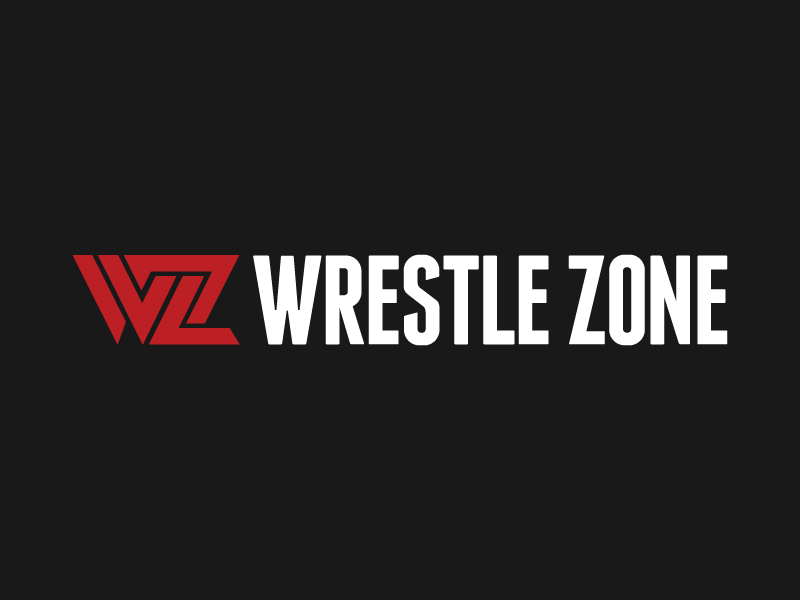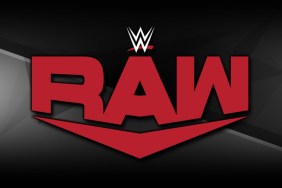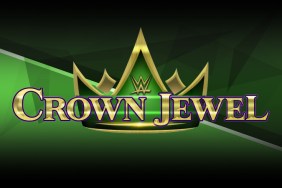People in glass houses shouldn’t throw stones, but what if it’s only the ceiling that’s made of glass? Too often is the term “glass ceiling” thrown around frivolously, without much care to its actual meaning. The term itself was brought to creation in reference to the male hierarchy in the corporate workplace. During a time when women were widely forced to work for pittance and the top tier male workers endeavoured to keep any job above drone level out of reach for the female employees. It’s debatable whether or not the glass ceiling remains to such a degree, but either way, steps were undertaken to correct the ingrained sexism.
The same ‘glass ceiling’ is often mentioned in reference to wrestling, suggesting there’s a prejudiced greater power with a divine hand who decides who the next glorious title recipient shall be. The theory is as ambiguous and unfounded as it seems, there’s little proof, and is even less productive to debate. That glass ceiling may be imagined, but there’s a more sinister and overlooked glass ceiling that exists in the WWE, the payment of ‘dues’.
As new stars are bred through television exposure, an outcry denouncing the young athlete’s contribution of ‘dues’ is heard in the background. No one has ever given a clear meaning of what or how many ‘dues’ one has to pay before they’ve invested satisfactorily, yet people accuse them unrelentingly with ease. The general understanding is that before a wrestler deserves top booking, he or she must scale the ranks of the low and mid cards regardless of however much talent they possess. Essentially an institutionalized hazing technique.
This school of thought exists in two realms. One realm is the outspoken fan base who at the best of times vehemently oppose any incarnation of change, and feel that any young up-and-comer who’s rise to fame was less than gradual should prove that they’re deserving of their spot. The real obstacle being that this outspoken faction of fans are incredibly difficult to please, and often make it their unofficial duty to carry out the complete reverse reaction to that intended by the company. The reason this happens is unclear, and is usually put down to a holier-than-thou attitude. Randy Orton, Brock Lesnar, and even Goldberg have all fallen victim to this cynicism, seen as corporate pets due to their stellar pushes to top billing. In reality, the situation occurred where all other token monster characters had grown stale and a new threat needed to wreak havoc, thus Brock Lesnar and Goldberg came to fruition. Common sense would suggest that if a character were going to be seen as an unstoppable force, chipping away at midcarders for six months would be incredibly unconvincing ‘wide-spread destrcution’. On average, most wrestlers do step up every rung of the ladder until they reach the top, but in isolated cases storyline itself causes a suitable wrestler to be catapulted, however undeserving, to stardom and the heavyweight title. If this is the exception rather than rule, then the harm is fairly trivial and should come to be expected as a cog in the greater machine.
The other realm exists within the ranks of wrestlers themselves. Pro wrestling is approaching a century since it’s formulation, and in raw procedure it has remained consistent and reasonably unchanged. As the years progressed the sport has accumulated its share of veterans and tradition, each veteran having his own firm grasp of what he believes the tradition actually is, defending it from any newcomer with their own ideas. Time has allowed an unspoken series of tribulations any new star is subjected to in order clarify who runs the place and to not get any big ideas to become mainstream and common. The process is governed by the idea of queue jumping, which seems logical that a dazzling apprentice shouldn’t leapfrog someone who has had his or her nose to the grind for a decade. However, cliques of veteran wrestlers who have wallowed in midcards and have seen their prime well truly slip by, use the young stars, symbols of what they believe they should’ve become, as outlets for their dissatisfaction with themselves and the system in general. The poster boy for this attitude is ‘Hardcore’ Bob Holly; a serial offender who regularly bridges the gap between wrestling and reality, turning fresh faces into bloodied ones. Holly went as far to assault a completely untrained contestant on Tough Enough, who had only barely dipped his toes into the sport, leaving him busted open. Other victims include Rene Dupree, Brock Lesnar and various others, each case resulting in little more than a slap on the wrist and a title shot for Bob. Since the latest Tough Enough has put apprentice and master face to face, many locker room veterans have raised their voices in opposition to an amateur receiving a more lucrative contract than themselves with barely an ounce of training. No one can deny that Bob Holly and other stars haven’t had stellar careers, but is this an excuse to deny someone the opportunity to reach the unattainable heights themselves?
Instead of grizzling at and berating the new kids on the block, some stars have decided to take these blank canvases under their wing and become mentors, making their desired impact indirectly. A healthy reaction to an inevitable and constant shift in the talent base. After all, to keep a balanced and sustainable product, there must be a stable cycle of competitors in different stages of their career. A real world example of this glass ceiling was during the WCW glory days. A successful product with clearly post-prime stars as its foundation, there was no nurturing of young talent, and in the end that was the final nail in the coffin. The veterans had the company at their beck and call because without their nostalgic draws, the company was dust, so they ran the show the way they wanted. Titles interchanged between the same high rollers each week, and squash matches were booked whenever the mood for an ego boost arose. WCW was the ultimate glass ceiling. The company essentially became the amusement park of the veterans, with the young talent being the operators of the rides.
The real issue is that this ‘paying of dues’ has become an institution, so deeply embedded that it’s a part of the very nervous system of the sport. The vicious cycle continues each time a star reminisces how he was treated upon arrival, and imposes the same treatment on the next generation. Triple H was once humiliated on the greatest stage of them all by one of these veterans, and has since gained a reputation for joining the ranks of the very same bitter veterans. Rumour or not, it’s a prime example of how the cycle moves through the generations. In small doses, paying dues has it benefits, such as acquired respect and work ethic. If kept within the realms of reason, it keeps the sport functioning and the talent content, but if ignored it cripples the company. This form of glass ceiling is often overlooked as an aspect in the greater working of the business, yet governs whom we see on television. Once the current generation of veterans passes, another generation will fill the gap, and as along as composition and attitudes of each party remains balanced, the glass ceiling will be the cover that keeps the big house of pro wrestling from collapsing.
If you’d like to give me feedback or have any question feel free to throw me a line at TheButchershopColumn@hotmail.com. Also, if you’re the owner of a website and would like The Butchershop to make a regular appearance on your site, feel free to inquire within.
Over and Out
The Butcher
– – – – – – – – – – – – – – – – – – – – – – – –
If you are interested in becoming a columnist or simply love reading wrestling columns and would like to interact with the Column Staff here at WrestleZone please check out the Columns Lounge. Simply click HERE and you can take part in the fun today.








